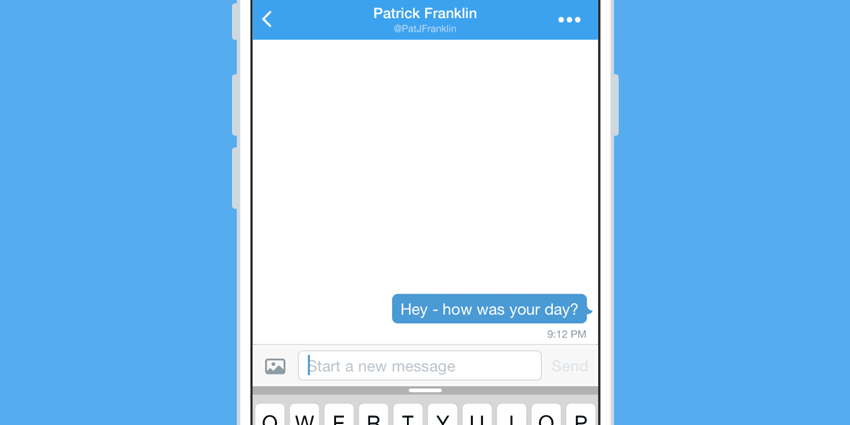
Sliding into people’s direct messages on Twitter just got a whole lot easier.
Twitter announced today that it’s increasing the character limit from 140 to 10,000 on direct messages making it finally useful for communicating coherent thoughts and making it a formidable competitor to Facebook Messenger and WhatsApp.
The feature begins rolling out today and will be available for all over the next few weeks. The 140-character limit, however, remains for public tweets.
Twitter made this GIF announcing the change. This person sounds stressed!

Twitter claims to have a competitive advantage over Facebook and other chat apps because the public stream provides “amazing content” such as “memes, news and movements” that propels people to want to discuss it privately, product manager Sachin Agarwal told the Guardian.
The pivot proves that Twitter is still trying to figure out what it is as its latest earnings show that user growth has stalled. With the practically unlimited character limit, its approach appears to be angling it as a chat app, but it’s not going to abandon its public stream anytime soon.
Direct messages have largely been ignored until recently as Twitter finally offered improvements, including the ability to send links, other tweets, videos, emojis and the ability to initiate group chats. When co-founder Jack Dorsey first ran the company, the Wall Street Journal reports that he didn’t focus on the feature because it didn’t have ads.
When asked by Digiday if ads were coming to direct messages, Twitter said it doesn’t comment on future plans or “things that we may or may not be building or have ever thought about building.” So, probably not — for now, at least.
More in Media

In Graphic Detail: The scale of the challenge facing publishers, politicians eager to damage Google’s adland dominance
Last year was a blowout ad revenue year for Google, despite challenges from several quarters.

Why Walmart is basically a tech company now
The retail giant joined the Nasdaq exchange, also home to technology companies like Amazon, in December.

The Athletic invests in live blogs, video to insulate sports coverage from AI scraping
As the Super Bowl and Winter Olympics collide, The Athletic is leaning into live blogs and video to keeps fans locked in, and AI bots at bay.





